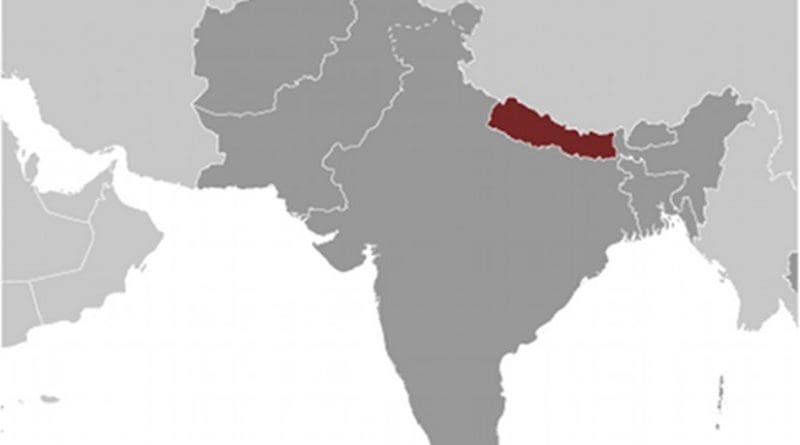Nepal Between The Dragon And The Elephant – Analysis
By IDN
By Shastri Ramachandaran*
Yet another South Asian country, Nepal, is falling for the charms of China. The language of this new dalliance, regardless of where it may lead, is causing unease in India. Arriving in Beijing on March 20 for a week-long visit, Nepalese Prime Minister KP Sharma Oli said that his country’s relationship with China was “as high as the Himalayas”, which he said symbolised friendship.
In what could be a red rag to New Delhi, Oli called China an “all-weather friend”, a term loaded with China’s value for Pakistan as a deterrent against India. China-Pakistan friendship, however, has moved to a higher realm — that of “iron brothers forever”, as Chinese President Xi Jinping underscored on his first state visit to Pakistan in April 2015. The parallel with Pakistan does not end there.
Oli said that Nepal will actively participate in China’s Belt and Road Initiative, as the Silk Route development plan is called. It may be no coincidence that Pakistan is the other, most enthusiastic South Asian participant in the Initiative. By all accounts, Oli’s visit to China has been a huge success. He said the main purpose of his visit, at the invitation of Premier Li Keqiang, was “to get support and goodwill from Beijing”.
The two sides signed a number of economic deals. China is offering its new “all-weather friend” energy and infrastructure deals, rail links, a free trade agreement and a trade and transit treaty — all with an eye on freeing Nepal from its dependence on India.
Although the deals are economic, Oli’s visit and exchanges with President Xi and Premier Li signal a geopolitical shift replete with strategic and political messages. Oli may have stuck to form in making his first foreign trip to India, despite the souring of India-Nepal ties.
The relationship touched a new low after New Delhi sought to dictate to Nepal its constitution and was accused of backing a 150-day blockade by the Madhesis, which came in for international criticism. The violent blockade, which cut off supplies of essentials, including fuel and medicines, provoked Nepal to take the issue to the UN. China stepped into the breach with a deal to supply fuel.
Oli’s visit to India was correct and cordial, but conspicuously lacking in the usual warmth. Thus, having fallen foul of its southern Big Brother and to be embraced by its northern giant neighbour was a huge morale booster for Nepal. And, President Xi pulled out all the stops. He favoured observer status for Nepal in the Shanghai Cooperation Organisation, where India and Pakistan are awaiting full membership; and, stressed the importance of Nepal as a bridge between India and China.
For all this, the realities of Nepal’s relationship with India cannot be wished away. As the India’s Ministry of External Affairs (MEA) spokesman pointed out: Two thirds of Nepal’s global trade is with India, and over 90 per cent of their exports/imports go through India. Millions of Nepalese live and work in India, and hundreds of thousands criss-cross the border every day.
That may explain the underlying pique in the MEA spokesman’s statement that Nepal is “free to explore any practical option it wants” in its foreign relations. What remains unsaid is that New Delhi could make life difficult for Nepal in the time required – and that would be a few decades — for breaking out of India’s “hegemony”.
Nepal’s neighbourhood policies vis-à-vis India and China are changing. So is China’s policy towards Nepal. New Delhi may now begin recalibrating its position. It can take its time because it is not easy to play in the space between the dragon and the elephant.
*Shastri Ramachandran is an Indian journalist and commentator and has worked in both India and China. He can be contacted at [email protected]. This article first appeared in dna with the headline India bristles as China woos Himalayan neighbor. It is being reproduced with the author’s permission.

